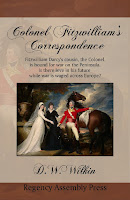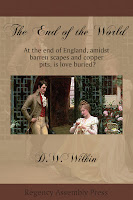by David William Wilkin
Sir Theophilus Shepstone, appointed by the British Secretary of State for the Colonies, Henry Herbert the 4th Earl of Carnarvon, took the opportunity to annex the Transvaal (The South African Republic), and the Boers, fearing the Zulus, allowed this. Paul Kruger, (known as Oom Paul) was elected by the Boers to deal with the Zulu threat and then with the British. He went to London twice for discussions where he was not treated kindly by the British press.
Shepstone now turned his attention to the Zulu, causing friction between them and the British, thus gaining time to keep the issue with the Boers in check. Sir Bartle Frere was sent to the Cape Colony from Britain to see to the matter, and he with Lord Chelmsford boxed the Zulu into a corner, even though the Disraeli government did not want another colonial war. The Zulu war broke out on January 11, 1879 and ended on July 4th 1879 with the conquest of the Zulu capital of Ulundi. The British used their victory over the Zulu to consolidate their power over the Transvaal.
Garnet Wolseley had come to conquer the Zulu and after things were quiet, he left, leaving Major-General Sir George Pomeroy Colley in charge. He had friends amongst the Boers but could not get to the Transvaal. His administrator, Owen Lanyon, a man without experience, and no real grasp of the situation, realized too late that troops were needed.
The Boer army was one of civilians--farmers with their own guns and horses. Nothing formal and certainly no uniforms. The Boers were marksmen, while the British aimed their rifles at an area and shot in volleys, hoping the weight of fire would hit the enemy.
The British lost for a variety of reasons. The Boers were better marksmen. The Boers had mobility, having their horses, while the British had few. And then the British of course were full of their own superiority thinking that the army was bound to beat the undisciplined mob of civilians.
Should the British have taken the time to understand the Boers who had been moving away from the lands that the British ruled, then perhaps a diplomatic and peaceful alliance between the two could have occurred. They were neighbors, the British never releasing the Cape and their trail to India. The Boers never leaving Southern Africa. But the British could not see that the Boers were something more than farmers. And the Boers could not help but remember that they had come to South Africa for a chance to be free of any and every oppression.
Research
Ian Knight The Boer Wars (1) 1836-98, 1996
Joseph Lehmann Echoes of War, The First Boer War, 1972
Donald Denoon Southern Africa Since 1800, 1972
Ian Knight The Boer Wars (1) 1836-98, 1996
Donald Denoon Southern Africa Since 1800, 1972
* * *
 Mr. Wilkin writes Regency Historicals and Romances, Ruritanian (A great sub-genre that is fun to explore) and Edwardian Romances, Science Fiction and Fantasy works. He is the author of the very successful Pride & Prejudice continuation; Colonel Fitzwilliam’s Correspondence. He has several other novels set in Regency England including The End of the World and The Shattered Mirror.
Mr. Wilkin writes Regency Historicals and Romances, Ruritanian (A great sub-genre that is fun to explore) and Edwardian Romances, Science Fiction and Fantasy works. He is the author of the very successful Pride & Prejudice continuation; Colonel Fitzwilliam’s Correspondence. He has several other novels set in Regency England including The End of the World and The Shattered Mirror. His most recent work is the humorous spoof; Jane Austen and Ghosts, a story of what would happen were we to make any of these Monsters and Austen stories into a movie.

 And Two Peas in a Pod, a madcap tale of identical twin brothers in Regency London who find they must impersonate each other to pursue their loves.
And Two Peas in a Pod, a madcap tale of identical twin brothers in Regency London who find they must impersonate each other to pursue their loves.He is published by Regency Assembly Press
The links for all locations selling Mr. Wilkin's work can be found at the webpage and will point you to your favorite internet bookstore: David’s Books, and at various Internet and realworld bookstores including the iBookstore, Amazon, Barnes and Noble, Smashwords.
And he maintains his own blog called The Things That Catch My Eye where the entire Regency Lexicon has been hosted these last months as well as the current work in progress of the full Regency Timeline is being presented.
You also may follow Mr. Wilkin on Twitter at @DWWilkin
Mr. Wilkin maintains a Pinterest page with pictures and links to all the Regency Research he uncovers at Pinterest Regency-Era




This was such an interesting article. I learned a lot. Thanks.
ReplyDelete